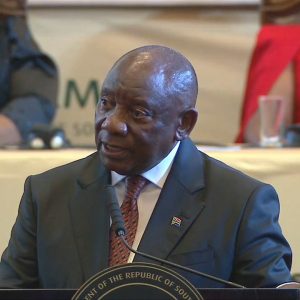Majority of technocrats in new Palestine government
RAMALLAH, Palestine (AA) – Mohammad Mustafa, appointed prime minister of the Palestinian Authority (PA), has formed a new government, mostly composed of new technocrats.
Names that dominated the political arena in the West Bank for years are now absent from the lineup except for Interior Minister Ziad Hab al-Reeh, who is affiliated with the Fatah movement.
“Prime Minister-designate Mohammad Mustafa has presented his government’s action plan and proposed formation list to President Mahmoud Abbas for confidence under the Basic Law for its approval,” the official Palestinian news agency, WAFA, reported.
Abbas issued “a decree granting confidence to the 19th Palestinian government and issued a decree regarding its formation,” it added.
The new government is scheduled to be sworn on March 31.
– Technocrats government –
The new government includes 23 ministers, a downsizing from 26 ministers in the previous government.
One of the new government’s most important features is its largely non-partisan nature, as its composition is dominated by technocratic ministers, except al-Reeh.
Al-Reeh retained the Interior Ministry portfolio he held in the previous government headed and formed by Mohammad Shtayyeh in March 2019.
Al-Reeh previously held the position of head of the Preventive Security Service, a security agency affiliated with the Palestinian President’s office.
Mustafa is not a member of Fatah. However, he is a senior economic advisor to Abbas and a member of the Palestine Liberation Organization’s Executive Committee.
Mustafa has held several positions in previous governments, in addition to the chairmanship of the Palestine Investment Fund (PIF), one of the institutions of the Palestine Liberation Organization since 2015.
– Absence of old names –
Among notable absentees is Foreign Minister Riyad al-Maliki, who had been a fixture in that position since 2009 but was notably excluded from the new lineup.
Finance Minister Shukri Bishara who had held the position since 2013, was also excluded.
The new government opted to merge the education and higher education portfolios into a singular entity named the Ministry of Education and Higher Education.
The Ministry of Entrepreneurship portfolio, established in the previous administration to spearhead entrepreneurial endeavors, has been abolished.
The new lineup notably omitted a portfolio for the Ministry of Information. It remains uncertain whether a dedicated minister will be appointed to oversee its functions or if its responsibilities will be integrated into another portfolio.
– Minister of State for Relief –
The appointment of a Minister of State for the Ministry of Foreign Affairs and Expatriates marks a first in the governmental structure.
Additionally, a new position, the Minister of State for Relief Affairs, has been established, likely in response to the dire circumstances prevailing in the Gaza Strip amid the ongoing Israeli war.
The establishment of an Industry Ministry is a notable addition to the structure.
Furthermore, a rebranding effort saw the renaming of the Ministry of Communications and Information Technology to the Ministry of Communications and Digital Economy, reflecting a contemporary focus on digital advancements and economic strategies.
Representation of women within the ministry remained consistent with that of the previous Shtayyeh government, comprising three female ministers overseeing portfolios related to labor, women’s affairs and the Ministry of State for Foreign and Expatriates Affairs.
The new government includes eight ministers from the Gaza Strip which is currently under Israeli bombardment.










